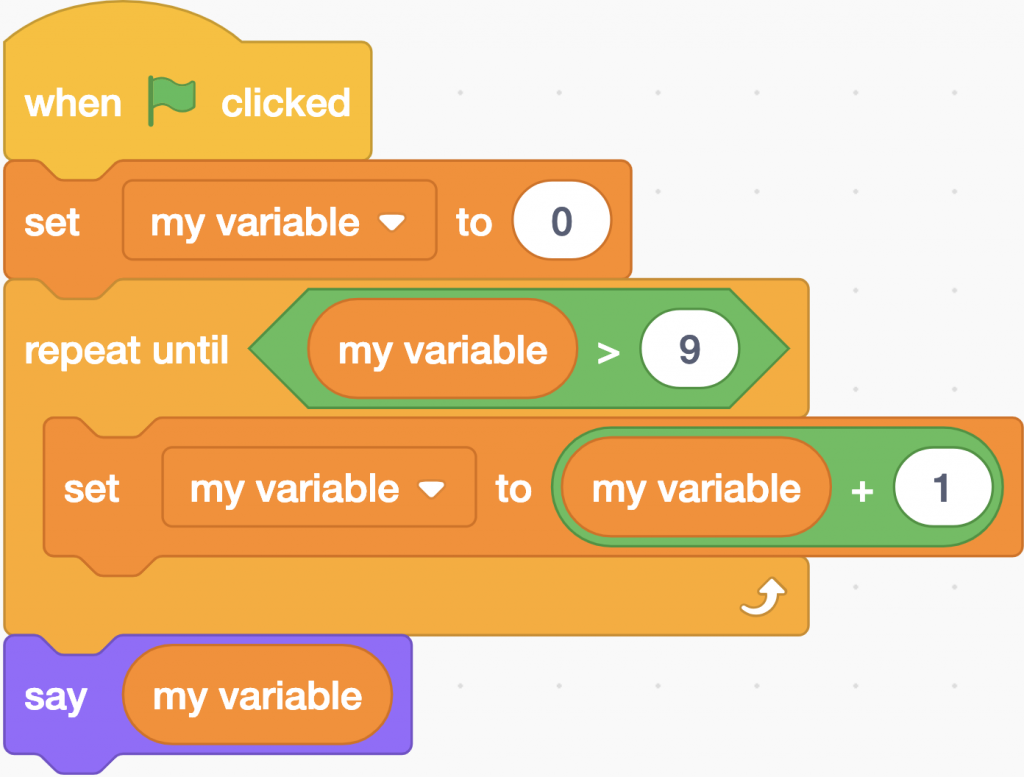
- Try speaking the computer program above out loud to a friend and ask them to write down the words you say.
- Predict what output the program will make.
- Try making it in Scratch and see if it does what you predicted.
In speaking it, how did you make clear that the ‘say my variable’ piece was outside the ‘repeat until my variable greater than nine’ piece?
Questions like this can be revealing when students are asked to speak their programs out loud – Felienne Hermans has been blogging and writing a paper about this.
I find her work inspiring, as it draws attention to pedagogy from another field – reading – and applies it to our thinking about learning programming.
Some of the most useful research isn’t evidence of one method being slightly better than an another, but offers professional teachers an idea that can be used to inspire their creative take on pedagogy. In Felienne’s paper it is the “idea that in teaching attention should be devoted to how to read source code aloud.” Not only is this a good trigger for designing lessons, but the experiment, to invite learners to read out code and examine how they read it, is almost certainly a learning experience in its own right.
